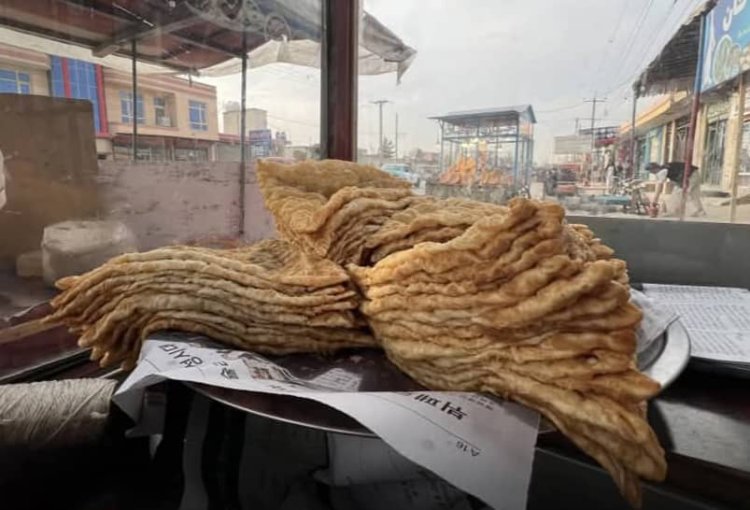From Police Uniform to a Bolani Cart: A Widow’s Struggle

In the Pul-e-Surkh area of Kabul, a 35-year-old woman stands beside her modest bolani cart, her expression heavy with sorrow. Her name is Nargis — a former police officer who, following the death of her husband and the collapse of the former Afghan government, turned to street vending as her only means of survival and a way to support her three children’s education.
Although half of her face is covered by a mask, the lines on her face and the faded color of her clothes speak clearly of a life shaped by hardship.
Nargis explains that her husband, a military officer under the previous government, was killed in a suicide bombing roughly four months before the Taliban's return to power. Left alone with two daughters and a son, now between the ages of 10 and 15, her life took a darker turn. A few months later, when the government fell, she lost her position in the police force. Since then, her life has been overshadowed by despair and uncertainty.
With tears welling in her eyes, she says, “After losing my husband and my job, I made a decision — I had to find work so my children wouldn’t fall into poverty.” She adds, “Now I leave home every day at 9 a.m. and sell bolani here on the street.”
Nargis earns about 200 Afghanis (roughly $2.50) a day. Though far from enough to meet their daily needs, she remains grateful: “Thank God I can at least survive on this income. If I didn’t have this job, I don’t know what would have happened to us.”
Selling bolani is her sole source of income. From these modest earnings, she manages to feed her family and cover educational expenses for her children. Yet with concern in her voice, she adds that her two daughters can no longer attend school: “My son is 15 and still goes to school, but my daughters, aged 12 and 10, are banned from attending due to the restrictions. Now they’re learning tailoring at home.”
She says she dedicates everything she earns to her children’s education, fulfilling what she describes as her late husband’s greatest wish.
Reflecting on her marriage, Nargis shares that she had married her cousin for love. But since his death, she feels as though she’s lost half of herself. “There’s a deep sorrow in my heart that’s hard to bear sometimes,” she says. “But I never show it to my children — I don’t want them to feel the pain of losing their father.”
Since the Taliban's return to power, Afghan women have been systematically removed from government offices, public institutions, the media, and most professional fields. According to a UN report, within just a few months of the regime change, over 60% of working women — especially in Kabul — lost their jobs.
Alongside the closure of secondary schools for girls, the continued restrictions have pushed millions of Afghan women into poverty, isolation, and social collapse. Nargis is just one among thousands of women who, despite losing their livelihoods, husbands, and safety, continue to stand tall and fight for their children’s future.
